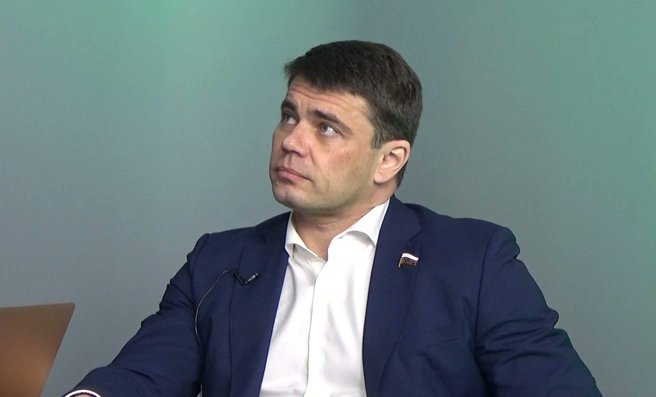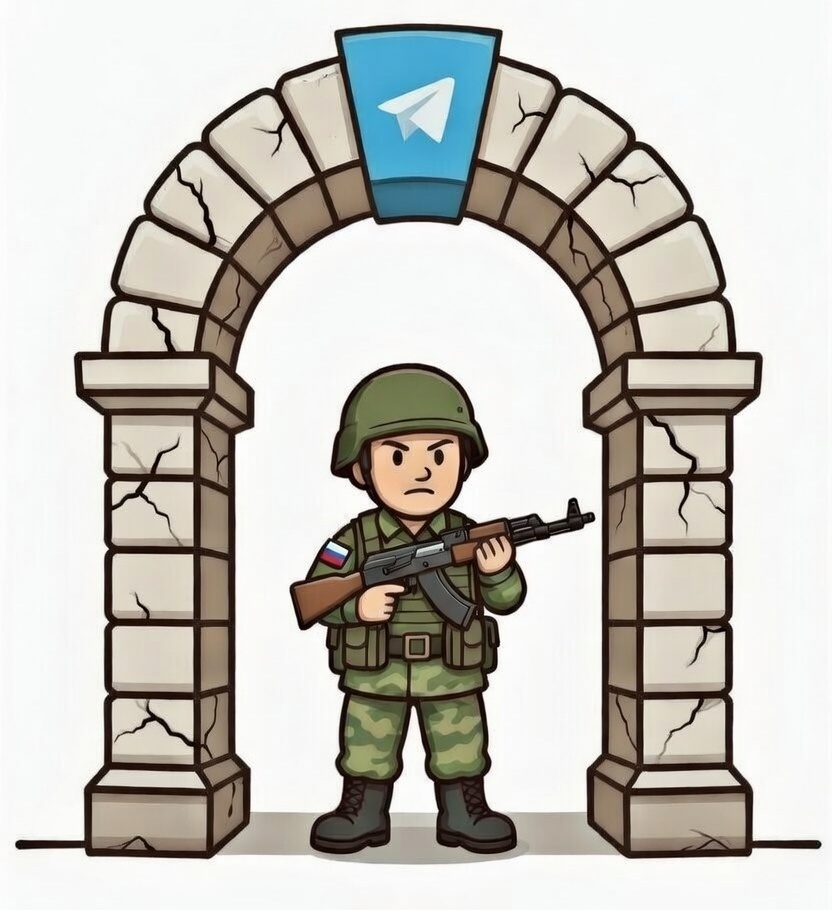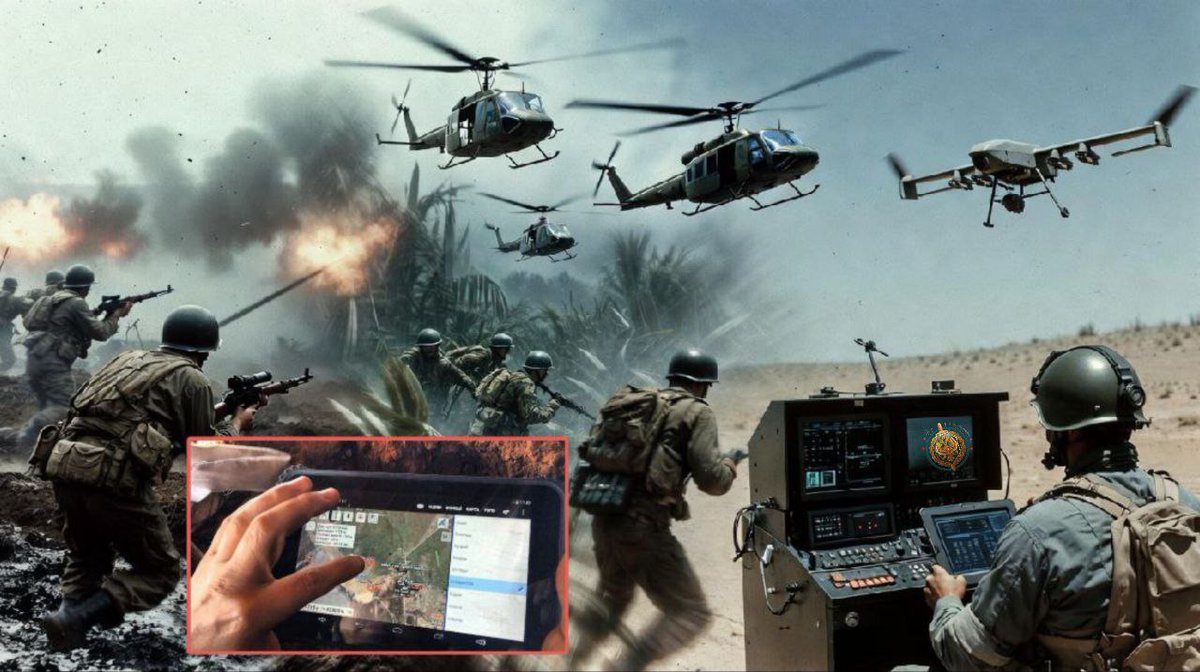1/ Many videos have been posted by mobilised Russians in the past month, complaining about the conditions they face in Russia's current offensive. Here's a deeper look at their complaints and a major new factor – the role of the Donetsk and Luhansk 'People's Republics'. ⬇️ 
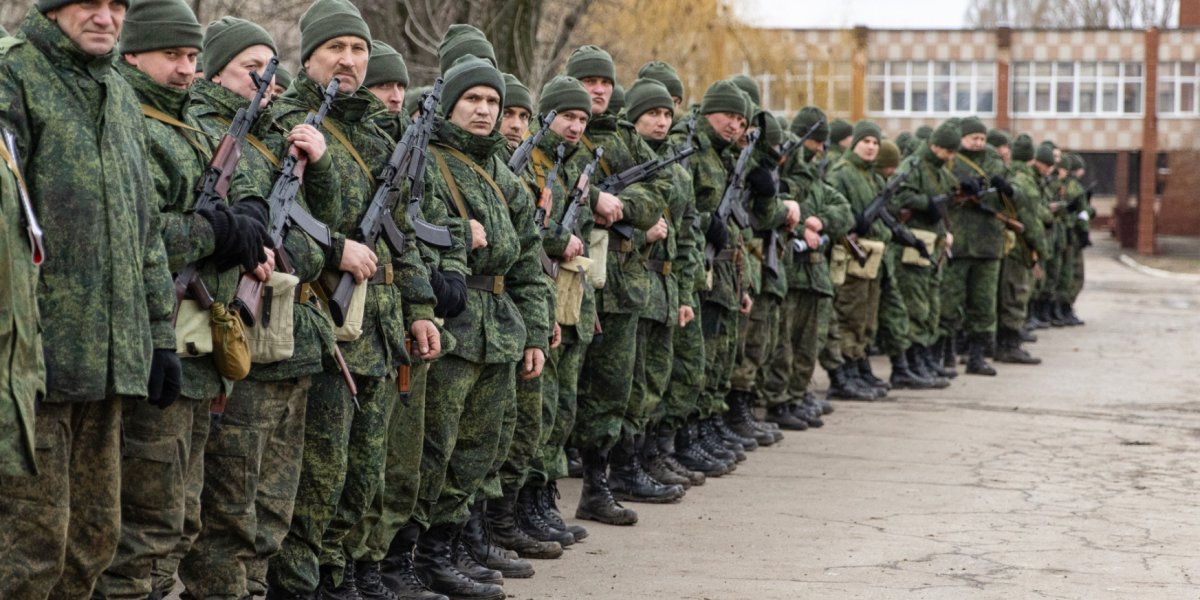
2/ For a summary of the videos and the timeframe of their posting, see the thread below. The videos all follow the same general format of an appeal to Russian president Vladimir Putin to resolve problems at the front line in Ukraine.
https://twitter.com/ChrisO_wiki/status/1633920129560920067
3/ The 'appeal to the Tsar' is a deep tradition in Russian history, going back centuries. Petitions used to be called 'chelobitnye', literally 'forehead-beating documents', reflecting petitioners' ritual bowing of their foreheads to the ground before the Tsar. 
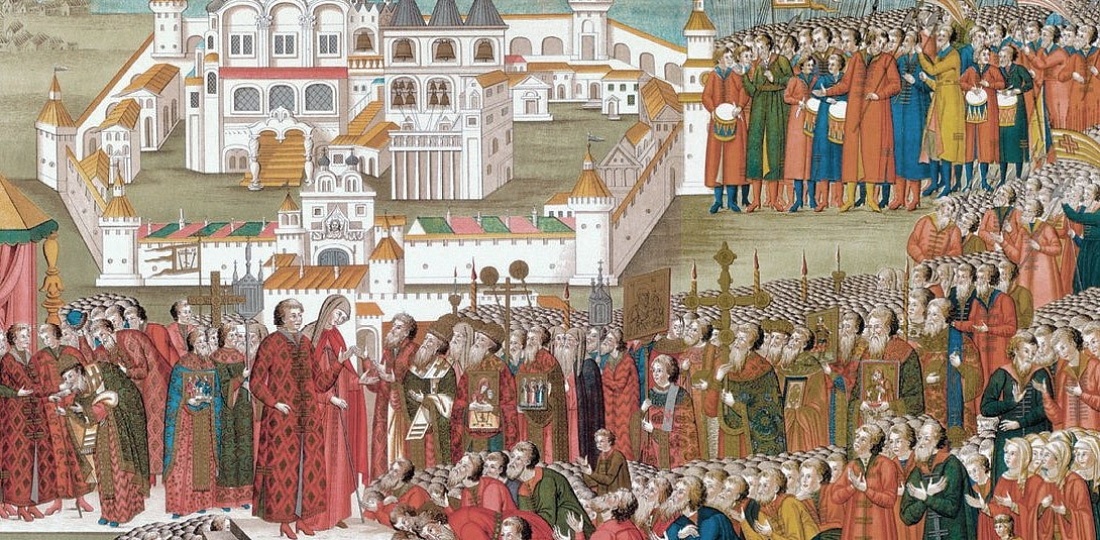
4/ They also had a ritual formulation, which is (probably unconsciously) reflected in the mobiks' appeal to "dear Vladimir Vladimirovich". Soldiers appealing to the Tsar would begin: "Sovereign, Tsar and Grand Prince <name>! Your slave humbly beseeches you!"
5/ Importantly, petitioning was regarded as being a right, and the Tsar as father of the nation was meant to respond and not suppress them. In January 1905, revolution broke out when Tsar Nicholas II's troops gunned down betwen 200-1,000 petitioners in St Petersburg. 
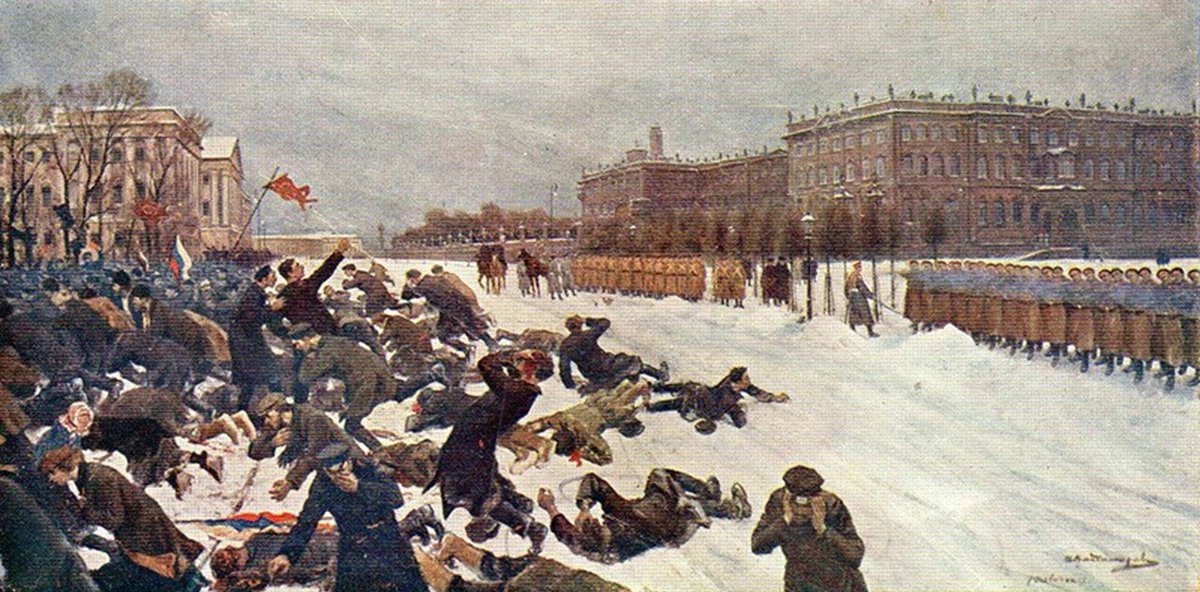
6/ Obviously, modern Russia isn't the same as Nicholas II's. But Putin has revived Tsarist tropes to a striking degree, from his current neo-imperialist ideology, to literally sanctifying the Romanovs, to expensively restoring Nicholas II's former residence near St Petersburg. 

7/ The first wave of appeal videos were posted by mobiks in September-October when they were being rushed to the front lines to plug gaps that had been torn in Russian defensive lines by Ukraine's Kharkiv and Kherson offensives. They had some similar themes to the latest videos.
8/ The petitioners complain that:
🔺 They have been sent to the front lines without the correct training
🔺 They were told they would be assigned to territorial defence units in the rear or border areas, but were sent to the front instead
🔺 Their commanders are absent
🔺 They have been sent to the front lines without the correct training
🔺 They were told they would be assigned to territorial defence units in the rear or border areas, but were sent to the front instead
🔺 Their commanders are absent
9/ 🔺 They lack equipment and armoured vehicles
🔺 Fire support is absent
🔺 Communications are poor
🔺 Orders are unclear or lacking entirely
🔺 They are taking unnecessary casualties
🔺 Medical help and evacuation is unavailable
🔺 Fire support is absent
🔺 Communications are poor
🔺 Orders are unclear or lacking entirely
🔺 They are taking unnecessary casualties
🔺 Medical help and evacuation is unavailable
10/ They do not (and cannot) protest the war itself, as this would be considered outside the bounds of legitimate discussion. They have to proclaim their loyalty and willingness to fight, but not question the premise of why they are fighting in the first place.
11/ Interestingly, in the current wave of videos, few mobiks complain of a lack of food and water. Last autumn's petitioners complained that they were surviving on water from puddles and eating mushrooms and unharvested grains. Perhaps this logistical issue has been fixed?
12/ Another consistent theme in the recent videos is the mobiks describing how they have been ordered to carry out assaults despite having no training as assault troops. This was true of the earlier wave of videos, as well. But the circumstances are different. 

13/ Last autumn, many mobiks were thrown into battle in a desperate effort to hold back the Ukrainian advance. Commentators suggested that the Russians would use the winter to train the remaining mobiks as assault troops for a spring offensive.
14/ It seems that – at least for the men in the new videos – this did not happen. They were trained instead as territorial defence units, and then found themselves being retasked as stormtroopers, with little or no preparatory training, when they arrived in Ukraine.
15/ It's likely that many mobiks were deliberately deceived about what their roles would be, and were given the 'wrong' training so that they would be easier to handle. Russian military bloggers have discussed the mobilised being lied to.
https://twitter.com/ChrisO_wiki/status/1629201238213505027
16/ One big change in the current wave of videos is that many of the petitioners say their Russian Army units were disbanded when they reached the separatist 'republics' in eastern Ukraine. They were instead incorporated into local military forces. 

17/ The two 'republics' – the Donetsk People's Republic and Luhansk People's Republic (DNR and LNR) each have an Army Corps, numbered as the 1st and 2nd respectively. They were equipped with obsolete, in some cases WW2-era, weapons such as 80-year-old Mosin rifles. 

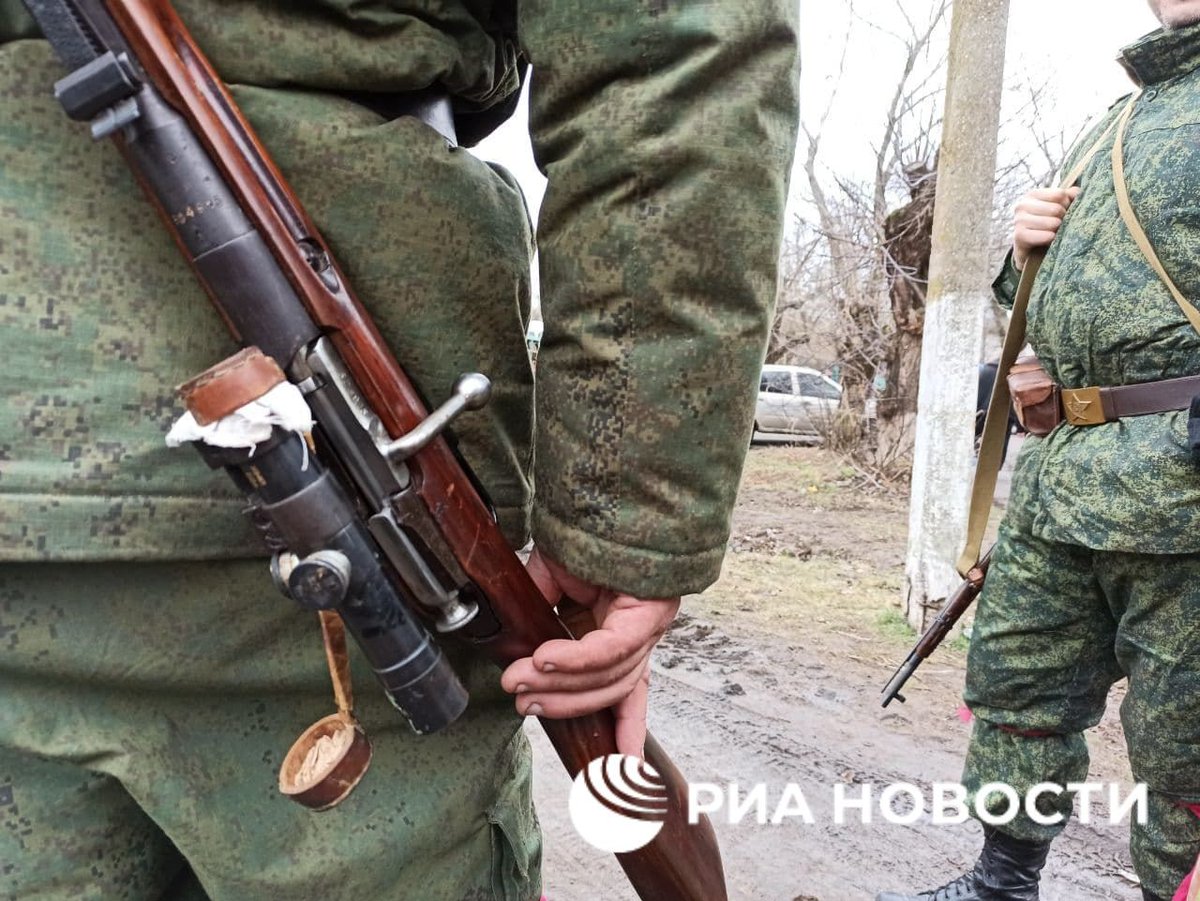

18/ These corps have become officially part of the Russian army, but before the war they had a severe shortage of personnel – some units were reportedly only at 50% strength. The republics launched a mobilisation at the outbreak of the war to remedy this.
19/ The mobilisation was a remarkably brutal process – men were literally snatched off the street at gunpoint and impressed into the army. Prisoners and students were also forcibly conscipted. Exemptions for age or infirmity were routinely ignored.
https://twitter.com/dl5577/status/1547684502998175744?s=20
20/ The DNR and LNR used up their own mobiks rapidly, throwing them into major battles at Mariupol and Severodonetsk with little training and poor weapons. By last autumn, many DNR and LNR units were likely combat ineffective. Ukraine's offensive routed such units.
21/ Russia has been reconstituting the decimated DNR and LNR units with mobilised Russians. This is mentioned in several of the videos, but as the men complain, it seems to have been done in an underhand and irregular way.
22/ In several videos they say that their transfer was not documented and their military IDs were not updated, or were only updated with partial information. Other mobiks say they do not know what unit they belong to or who or what ranks their commanders are. 
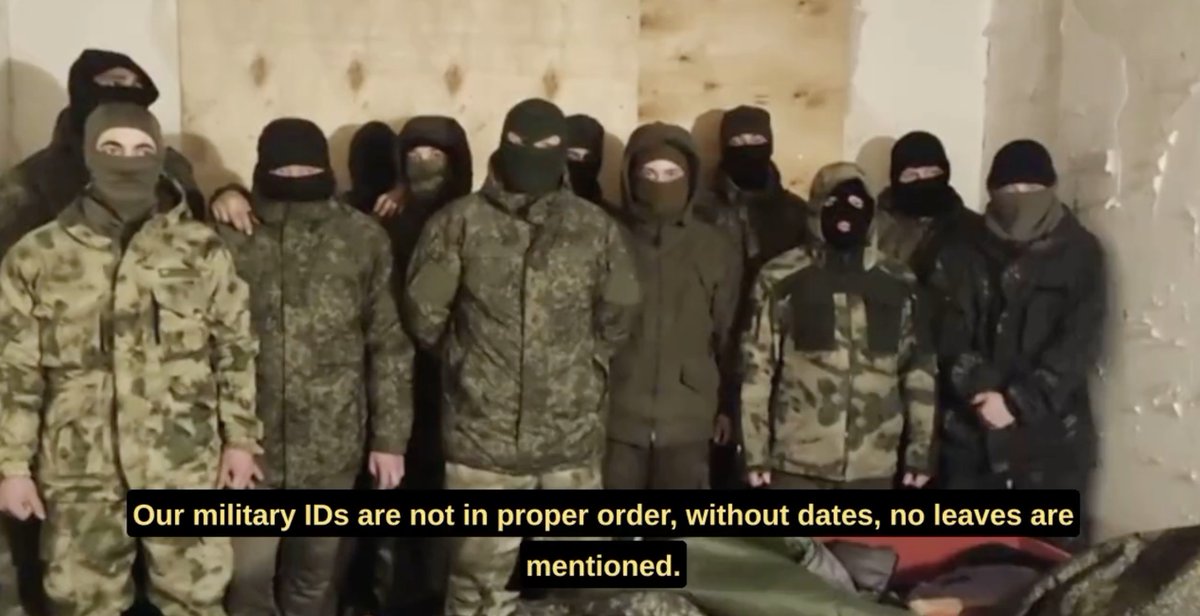
23/ This has important practical consequences for the men. Without proper records, they are 'off the books'. There's no record of their war service, so they can't get a combatant's certificate that would entitle them to a pension and veteran's privileges after the war.
24/ They can't get leave, they may not be able to get paid, their relatives will probably not be compensated if they die. Conveniently for the Russian Ministry of Defence, their deaths would be on the casualty rolls of the L/DNR, not Russia. The men naturally don't want this.
25/ The men also complain about how L/DNR officers are sending them on suicidal assaults against Ukrainian positions. For instance, men from Mordovia and Mari El are reportedly being sent in groups of 8 to 10 but mostly dying in the process.
https://twitter.com/ChrisO_wiki/status/1633957200455430145
26/ In this video, they say they have been told directly by their officers that they are "expendable" and will only return home if injured. They are being sent to "slaughter" "without cover, without escort".
https://twitter.com/i/status/1630867019590430720/video/1
27/ One soldier says his DNR commander told him, "Go and die."
The mobilised men also speak of clashes between Russians and 'DNRovites'. The men in the video above say that their DNR officers machine-gunned the house where they were sheltering to drive them forward into combat.
The mobilised men also speak of clashes between Russians and 'DNRovites'. The men in the video above say that their DNR officers machine-gunned the house where they were sheltering to drive them forward into combat.
28/ They and others say that DNR forces will not evacuate the Russian wounded because "they are afraid of losing their equipment." DNR evacuation teams will reportedly only take out their own men and lightly wounded Russians, leaving seriously wounded Russians on the battlefield.
29/ The DNR soldiers, they say, do not accompany them into combat. One Russian mobik says: "There was also a prejudiced attitude towards the mobilised men on the part of the DNR men ... We were given six DNR men as reinforcements, but they did not take part in the assault."
30/ He quotes one DNR soldier telling him, "We somehow managed to live these eight years without you – we would have kept on living." The man was a forcibly recruited prisoner. This suggests the DNR soldiers blame Russia for dragging them into the current war.
31/ The republics' endemic corruption – they are effectively run as criminal enclaves – is also a cause of discontent. The mobiks have spoken of being extorted to buy fuel for transport and being made to use their own money to buy food and water within the DNR. 
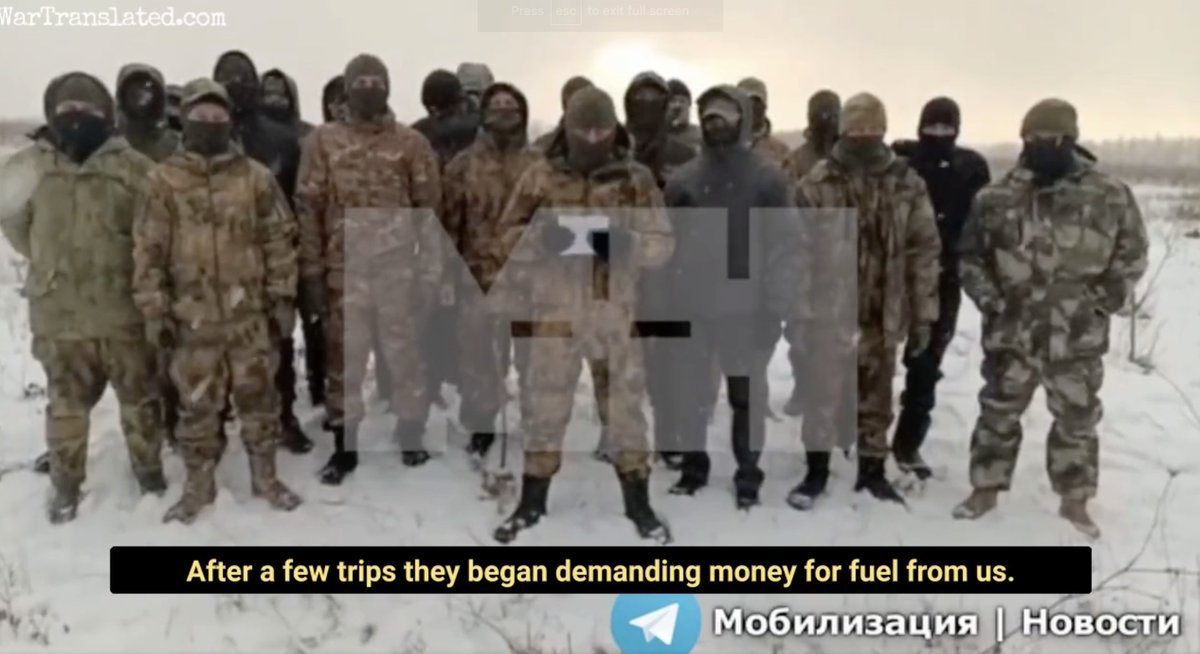
32/ As @colinlebedev points out in the translated thread below, it's hard to know how typical these videos are. But their growing number and their authors' geographical variety suggests widespread problems. /end
https://twitter.com/ChrisO_wiki/status/1634148619019251713
• • •
Missing some Tweet in this thread? You can try to
force a refresh


